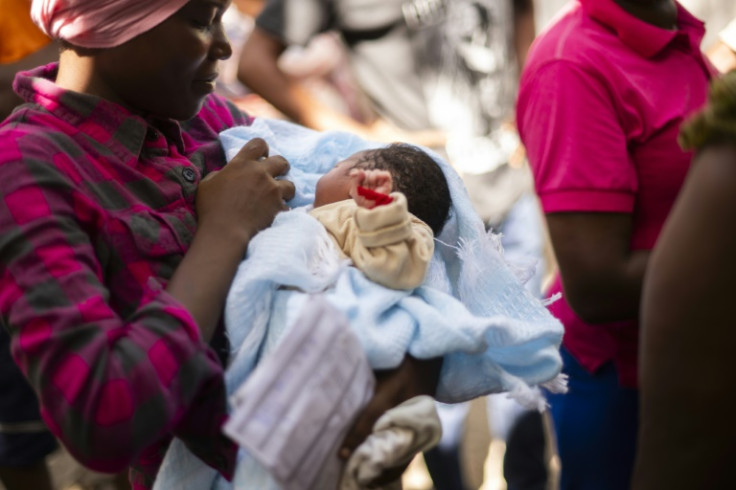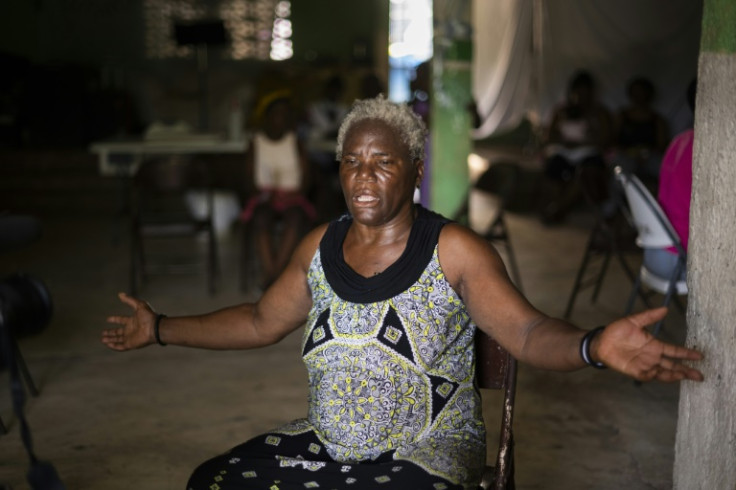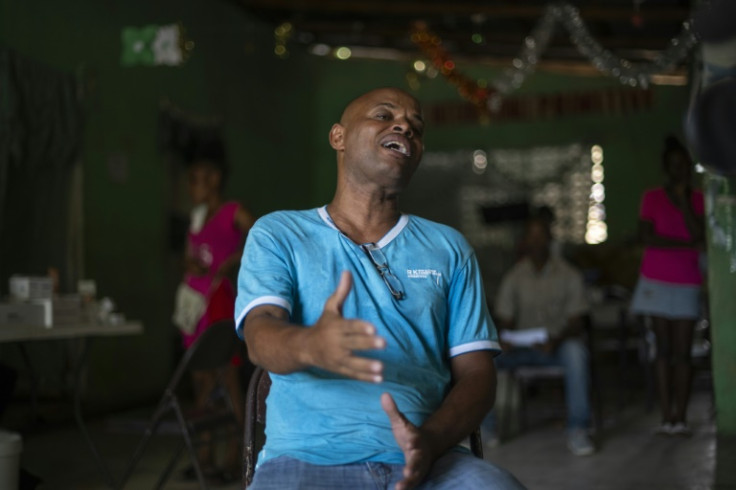Haiti Church Takes In Hundreds Fleeing Gang Violence

Over a year and a half since Haiti's rampant gang violence upended her life, Philomene Dayiti longs for nothing more than leaving the Port-au-Prince church where she has taken refuge with hundreds of others and returning home.
But with the country in the early days of a political transition and a gang-fighting international security mission just hitting the ground, it's uncertain how long the 65-year-old -- like hundreds of thousands of other displaced Haitians -- still has to wait.
"The only thing I'm asking for: I'd like to go home, find a place to rest. I can't stay here indefinitely," she told AFP recently at the crowded International Primitive Church.
Dayiti used to live in Bas-Delmas, a dangerous neighborhood in the capital's sprawling metropolitan area, and eked out a living selling various goods on the street.
When clashes between gangs broke out, she left her home and took shelter in the church, located on Delmas 19 just outside the capital.
Some 800 people now reside in a makeshift camp in the church's courtyard, surrounded by personal belongings hanging on walls or clotheslines.
Gangs had been steadily gaining ground in crisis-wracked Haiti -- with some estimates putting their control as high as 80 percent of Port-au-Prince -- but the violence spiked in late February.
In coordinated attacks, armed gangs struck sites around the capital and called for the resignation of Haiti's unelected prime minister, Ariel Henry.
He eventually agreed to step down and hand executive power to a transitional council, which has since named an interim prime minister and government.
But the ongoing violence has taken a major toll, with the UN's migration agency saying almost 600,000 people in Haiti have been displaced, a 60 percent increase since March.
There have also been soaring levels of reported murders, rapes, looting and kidnappings.
In late June, an initial batch of about 200 Kenyan personnel arrived in Haiti to support the police, the first part of a UN-approved international security mission that Nairobi agreed to lead.
However, after months of delays, it is uncertain when more Kenyan or other personnel will land, or how effective it will be at restoring order.
Roberto, who said he lived "peacefully" in a small community in Croix-Des-Bouquets, near the capital, has also taken refuge in the International Primitive Church.
"On the morning of January 21, 2023, as we went about our daily activities, we heard several gunshots. Then we saw armed bandits invade the area and take it over," he told AFP.
The armed men "told us not to panic and that the neighborhood was now under their control," said the father of two teenagers, who preferred to only give his first name.
He said there was shooting all night and that they ultimately decided to flee for the sake of the children.
To avoid arousing suspicions, they left discreetly, without taking any personal belongings.
Some Haitians report that armed gangs often force local residents to remain in place as human shields in the event of a police operation.
"I owned a car, a store, I have nothing left, I've sunk to the lowest level," said a despondent Roberto.
"To Haiti's government leaders: while you're blabbering all over the world, I've lost everything in a split second," he added.
Meus Lotaire, the church's 61-year-old pastor, said it was a major task managing the hundreds of people living there, often in stifling conditions.
"There are so many people here... it's swarming with people," he told AFP.
"We have all kinds of problems," he said, noting a serious shortage of toilets.
Access to healthcare is also difficult, with several hospitals closing up or reducing their services due to the violence.
At the church, many seek out the services of Alima, an NGO which operates mobile medical clinics.
The pastor praised Alima's "colossal" work, saying it treats "hundreds of patients" there.
That includes people who don't live in the church camp, such as 20-year-old Nehemie Laguerre, whose family lives close by.
The first-time mother was visiting the clinic for a check-up with her newborn -- a day after giving birth -- and left with medication and advice on how to care for the baby.
AFP asked Laguerre, a resident of Bas-Delmas, what the situation was like there.
She didn't want to talk about it, for fear of possible retribution.



© Copyright AFP 2025. All rights reserved.





















